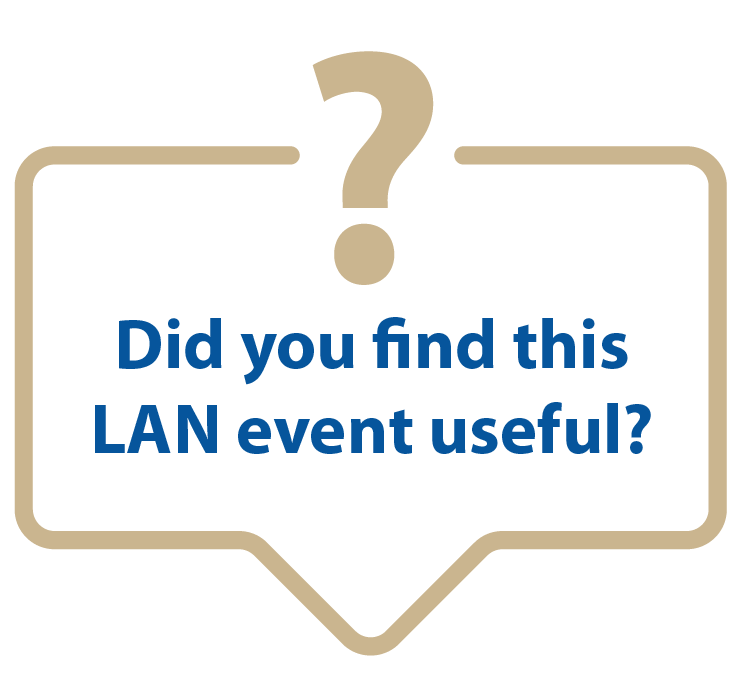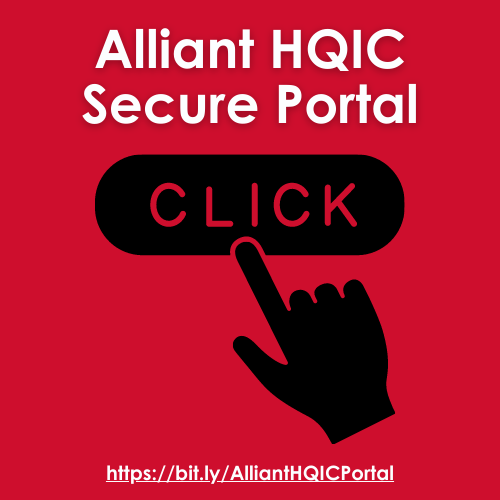|
|
|
|
This monthly newsletter highlights the latest insights, resources, and evidence-based best practices.
Our hope is that this newsletter makes it easy for you to stay on top of trends and allows you to provide the best possible care for those you work with and serve.
|
|
|

HHS Continues Promoting Health Equity in Rural Care Access Through Outpatient Hospital and Surgical Center Payment System Final Rule
The U.S. Department of Health and Human Services (HHS), through its Centers for Medicare & Medicaid Services (CMS), is improving access to health care, including behavioral health services, in rural communities. CMS is releasing the calendar year 2023 Hospital Outpatient Prospective Payment System and Ambulatory Surgical Center Payment System final rule with a comment period. This final rule will allow Critical Access Hospitals and small rural hospitals to convert to Rural Emergency Hospital (REH), which may be a more sustainable option for rural hospitals facing closure and supports access to care in rural and underserved communities. An REH is a new Medicare provider type that furnishes outpatient services, emergency services, and observation care. In this rule, Medicare will also pay hospital outpatient departments to provide remote behavioral health services to people at home, which will improve access to care in rural communities and promote health equity. Read More
|
Upcoming Learning and Action Network (LAN) Events
Patient Safety Session for Pressure Injuries, MDROs, Sepsis and ADE Opioids
Tuesday, January 17, 2023, from 3-4 p.m. ET
Save the date for an upcoming Patient Safety session with separate breakout rooms to discuss pressure injuries, MDROs, sepsis and ADE opioids. Registration is coming soon!
Antibiotic Stewardship: Quick Wins for Improving Duration of Therapy (hosted by IPRO HQIC)
Recorded on November 8
This event featured national antibiotic use and duration of therapy (DOT) trending data, strategies to address antibiotic stewardship challenges, examples of best practices to improve antibiotic discharge prescribing and a hospital’s success with engaging leaders, providers and frontline staff in a hospital-wide initiative to improve DOT and outcomes.
View the Presentation and Video
HQIC Cohort Celebration
Recorded on November 30
Check out the presentation on key learnings and interventions that led to improvement in hospitals that participated in the six-month patient safety cohorts. The common theme was the importance of having a physician champion or advisor.
View the Presentation and Recording
View All Upcoming Events Here

If Yes, Click Below.
Click here if you attended the June LAN event and were able to "use tomorrow" what you heard during the webinar.
View All Previous LAN Event Recordings
Community of Practice (CoP) Calls
CMS hosts CoP calls on the second Thursday of each month at 1 p.m. ET | 12 p.m. CT | 11 a.m. MT | 10 a.m. PT. The calls are open to all Alliant HQIC hospitals.
Patient and Family Engagement: An Intervention for Improving Patient Safety and Quality
Thursday, December 8
Patient and family engagement (PFE) is an area of increasing importance for hospitals. Fostering PFE in health care can lead to measurable improvements in multiple aspects of hospital performance, including quality, safety, finances, patient experience, health outcomes and employee satisfaction. In this webinar, two rural hospitals participating in the Hospital Quality Improvement Contractor (HQIC) program will share their experiences increasing PFE to improve patient care and outcomes. In addition, learn about available tools and resources designed to help hospitals promote stronger engagement with patients and families to achieve a meaningful result.
Register Here
Patient Safety Culture and Leadership: Reducing All Cause Harm and Achieving Five Star Rating
Recorded on November 10
CMS releases Overall Hospital Quality Star Ratings that include clinical metrics for hospitals annually. Hospitals that achieve better outcomes and higher ratings tend to foster a patient safety and leadership culture in their organizations. In this webinar, participants received an overview of the star ratings. In addition, a risk, compliance and quality director discussed his hospital’s quality dashboard that mirrors the dimensions of the quality measures in the hospital star ratings.
View the Recording and Presentation
Monthly Office Hours-IP Chat
 IP Chats are quarterly networking events to build knowledge, share experience and provide support for hospital infection preventionists. The Office Hours-IP Chats are hosted by Amy Ward, MS, BSN, RN, CIC, FAPIC. IP Chats are quarterly networking events to build knowledge, share experience and provide support for hospital infection preventionists. The Office Hours-IP Chats are hosted by Amy Ward, MS, BSN, RN, CIC, FAPIC.
The next session is scheduled for:
If you would like to schedule a one-on-one meeting with Amy, please let your quality advisor know. Questions? Contact Amy Ward at amy.ward@allianthealth.org.
|
 Alliant HQIC Online Portal Alliant HQIC Online Portal
Access the Alliant HQIC portal to view your assessments and measurement data, and chat with other HQIC-enrolled hospitals to share best practices, barriers and solutions. Download Portal Instructions to Get Started
HQIC Data Update
There have been changes to the data specifications used in the HQIC program for hospitals due to the impact of the COVID pandemic. As a result, you may see a variation in trends beginning in October 2021. Changes include:
- Adverse Drug Events (ADEs) – changes to codes
- CAUTI/CLABSI/MRSA – baseline changed from CY2019 to Sept. 1, 2020–Aug. 31, 2021
- Sepsis/Septic Shock and Pressure Ulcers – baseline changed from CY2019 to Sept. 1, 2020–Aug. 31, 2021, for COVID patients
Visit the HQIC website to download the updated HQIC Measurement Specifications.
Behavioral Health/Opioid Stewardship
JAMA Study: Association of State Opioid Duration Limits With Postoperative Opioid Prescribing
A study published in the Journal of the American Medical Association (JAMA) Network Open examined the association of opioid prescribing duration limits with postoperative opioid prescribing in Massachusetts and Connecticut, the first two states to implement limits after March 2016. Read the Study
Adverse Drug Events
Study: Identifying and Reconciling Patients’ Allergy Information Within the Electronic Health Record
Allergy information is often documented in diverse sections of the electronic health record (EHR). Systematically reconciling allergy information across the EHR is critical to improving the accuracy and completeness of patients’ allergy lists and ensuring patient safety. A retrospective cohort study published by IOS Press Ebooks examined the prevalence of incompleteness, inaccuracy and redundancy of allergy information. Read the Study
Patients Sensitive to Out-of-Pocket Costs When Making Decisions About Medications
Out-of-pocket costs may affect patients’ willingness to take medication even when their physicians recommend it, an Agency for Healthcare Research and Quality (AHRQ)-funded study found. Researchers found that cost-priming—encouraging patients to consider and discuss their financial situation before learning about the benefits of the medication—increased their willingness to take Entresto for heart failure. Read More
Antibiotic Stewardship
Documenting the Indication for Antimicrobial Prescribing: A Scoping Review
Documenting an indication when prescribing antimicrobials is considered best practice; however, a better understanding of the evidence is needed to support the broader implementation of this practice. Learn More
Sepsis
Sepsis and Intellectual and Developmental Disability
The Sepsis Alliance released new resources for health care professionals on Sepsis and Intellectual and Developmental Disability (IDD), an overlooked relationship in a patient population that experiences twice the prevalence of sepsis in the hospital. The Sepsis Alliance is also providing information on the close connection between sepsis and antimicrobial resistance. View Resources
Patient Safety
Safety Recommendations To Address Diagnostic Errors
Reducing diagnostic errors (such as missed, delayed or wrong diagnoses) is a major challenge for most health care organizations. A study in the November 2022 issue of The Joint Commission Journal on Quality and Patient Safety identified potential practices based on literature reviews, reports by national and international organizations, interviews with quality/safety leaders and input from additional experts. Learn More
NHSN
NHSN Reporting and COVID-19 Hospital Data Transitions
The National Healthcare Safety Network (NHSN) will assume responsibility for collecting COVID-19 hospital data in mid-December 2022. The Transition of COVID-19 Hospital Reporting webpage will be updated frequently with information about the transition of hospital COVID-19 data collection from TeleTracking to the NHSN. Data will continue to be posted publicly on HHS Protect and COVID Data Tracker. Facilities and groups can view their own data within the NHSN platform. For questions about the transition, email NHSN@cdc.gov with the subject “COVID-19 Hospital Data transition.”
Hospital-Acquired Infections (HAIs) and Infection Prevention
Video: Guidance on MRSA and C. diff Lab ID Reporting
Need guidance on the MRSA and C. diff Lab ID reporting? Check out the 20-minute presentation by Alliant’s Infection Prevention Technical Advisor. Watch Presentation
Readmissions/Care Transitions
Rural Hospital and Local Pharmacist Launch Team-Based Care Pilot
According to a study published in PLOS ONE, approximately 50% of individuals do not take prescribed medications correctly. Additionally, it is estimated that over 20% of readmissions are due to medication problems, with 70% being preventable.
What has the potential to impact these readmissions and reduce ADEs and emergency room utilization? A pharmacist and patient partnership!
Read about how the Appalachian College of Pharmacy, Buchanan General Hospital and the Virginia Department of Health partnered to utilize a pharmacist on patient rounds, medication review and discussion with patients, and after-discharge follow-up calls. Read the Article
CORE Insights: How Community Health Workers Strengthen Care Coordination Relationships
Supporting people with complex health and social needs often requires coordination between health care, social services, housing agencies, community-based organizations, and other service providers and entities. While this collaboration is essential to effective care coordination, it can also be complicated, requiring trust and information sharing between departments and organizations. Research conducted by the Center for Outcomes Research and Education (CORE) shows that community health workers can play a vital role in care coordination. Read More
Rural-Urban Geographic Health Disparities Persist for Chronic Disease
The latest data published in the JAMA Network Open shows that people living in rural areas are more likely to die from diabetes than those living in urban areas. In addition, diabetes mortality is particularly high among men in the rural south. The rural-urban divide in health outcomes has been long documented, but researchers say more study is needed to understand the determinants of rural-urban geographic disparities in chronic disease. Read Article
Health Equity
New Health Equity Resource from Missouri Hospital Association
A new health equity guidance resource developed by the Missouri Hospital Association (MHA) offers information on measuring health disparities, leveraging systems to engage with communities, and the important role of anchor institutions. MHA’s goal is to support informed decision-making and promote engagement that meets members where they are on this journey. Download the MHA Resource
AHRQ Releases Annual Update on U.S. Health Care Quality, Equity
The Agency for Healthcare Research and Quality (AHRQ) has released its 2022 National Healthcare Quality and Disparities Report (NHQDR), which provides policymakers, health system leaders and the public with a statistical portrait of how effectively the healthcare delivery system provides safe, high-quality and equitable care to all Americans. This year’s report includes data on four special emphasis topics: maternal health; child and adolescent mental health; substance use disorders; and oral health.
Read the Full Report | View NHQDR Data Tools
FY 2023 IPPS Final Rule
See below for details about health equity and social determinants of health in the FY 2023 Medicare Hospital Inpatient Prospective Payment Systems (IPPS) Final Rule
- IX. Quality Data – starts on page 1101
- E. Hospital IQR Program - Measure Set on pages 1177-1180
- Table IX.E-01 Five Attestation Domains on page 1187
View the FY 2023 IPPS Final Rule
|
CDC Digital Media Toolkit
The CDC has developed a digital media "fight the flu" toolkit with multi-lingual information, flyers and social media posts to share in newsletters and in offices. Check out their resources on their website. Visit CDC Website
|
Best Practices Corner
AdventHealth Murray Received 2022 Clinical Excellence Triumph Award
AdventHealth Murray, located in Chatsworth, Georgia, was recently recognized by the AdventHealth Quality and Safety Board with the 2022 Clinical Excellence Triumph Award. This award is given each year to AdventHealth hospitals that embody the service standard of “Keep Me Safe.” Read More
|
Success Stories
Kansas Critical Access Hospital Prevents CAUTI and Decreases Catheter Days
Cheyenne County, a 16-bed critical access hospital in St. Francis, Kansas, has decreased catheter days per patient days in the last year and is currently maintaining a zero rate of catheter-associated urinary tract infections (CAUTI).
Cheyenne County Memorial recently participated in the HQIC performance improvement cohort based on two CAUTIs identified in 2021. A comprehensive review of current practices and analysis identified inappropriate catheter use as a root cause. The team implemented solutions that included:
- Physician champion and the infection preventionist working together to promote appropriate catheter use, increase staff awareness and provide education.
- Team completed a policy review, and all staff who insert catheters now complete an annual competency for catheter insertion. The goal is 100% compliance by the end of 2022.
- A standard protocol was approved by the chief medical officer (CMO) that includes a nursing assessment/action flow sheet that guides the nurse through diagnosis, correct insertion and alternatives to foley use.
- Alternative methods implemented, such as external female catheters and more scheduled toileting.
According to NHSN data, Cheyenne County Memorial is demonstrating a downward trend for CAUTI SIR All Units and is currently maintaining a zero rate. The two CAUTIs in 2021 were COVID patients. In addition, Catheter Days per Patient Day shows a downward trend from January 2021 through August 2022 and is below the CY2019 baseline. The lowest data point is in August 2022.
Katie Bunker, RN, chief nursing officer/infection prevention, complimented the performance improvement advisory services provided by KFMC Health Improvement Partners, a subcontractor of Alliant HQIC.
“Nadyne has been an amazing resource for coming up with new ways of approaching each subject. Thank you for sharing our success story, and I hope we have many more,” Bunker said.
Congratulations to the team at Cheyenne County Hospital for their hard work and resiliency in improving patient care by decreasing CAUTI SIR All Units and Catheter Days per Patient Day.
To read other success stories, visit the Alliant HQIC website.
|
|
|
Connect with us!
    Click here if you'd like to share your corporate profiles with us and we'll connect with you!
Click here if you'd like to share your corporate profiles with us and we'll connect with you!
|
| |
Hospital Quality Improvement Project Collaborators


|
| |
For more information about Alliant Health Solutions, visit the website: www.allianthealth.org
For questions or information about free technical assistance, please contact:
Share this email with a friend or colleague:  
|
|
|
|
|